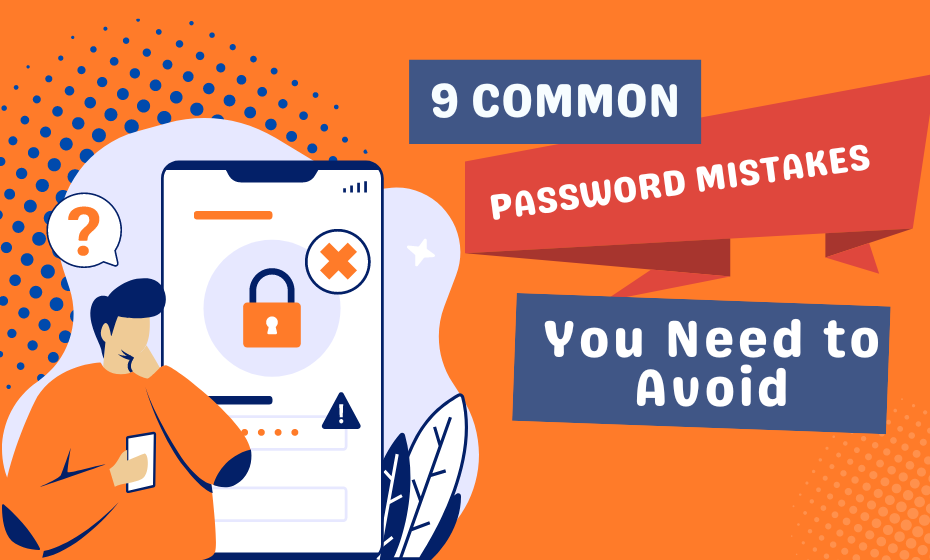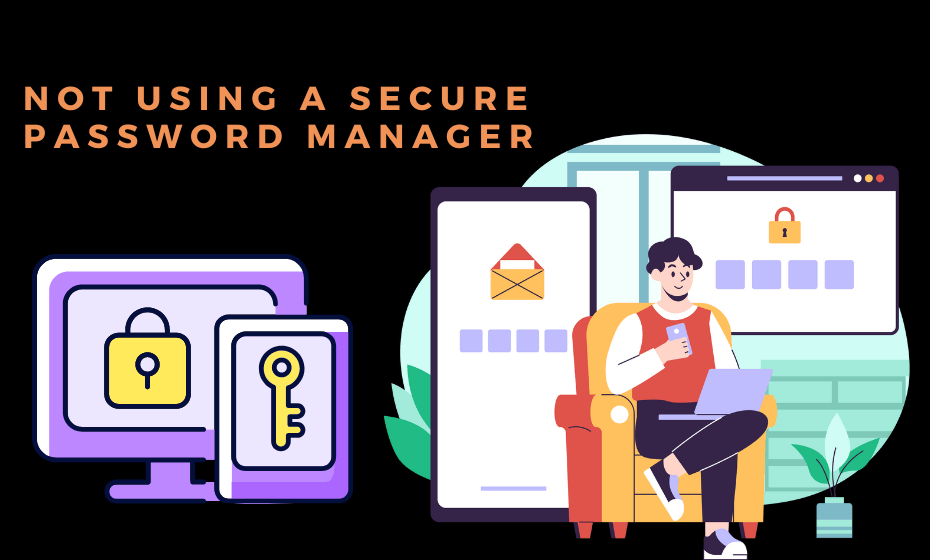WebTech Solution
WebTech Solutions, your one-stop destination for professional SEO, Digital Marketing and Link Building services at competitive price.
Contact usOur Office Address
- Office # 11 2nd Floor Kohinoor 1 Plaza Faisalabad 38000 (Pakistan)
- +923017277767
- info@webtechsolution.org
- Mon - Sat (9.00 - 9.00) Sunday - Closed
9 Common Password Mistakes You Need to Avoid
- Home
- 9 Common Password Mistakes You Need to Avoid

Insecure passwords are open invitations for unauthorized users to gain access to an individual’s confidential information. Examples of weak passwords include “1234”, “password” and other easily-guessable words or phrases. Not only do these flimsy security measures make it easier for outsiders to breach a user’s privacy, but they can also allow malicious attackers the opportunity to wreak havoc on entire systems making them completely insecure. Don’t make mistakes in choosing passwords because Strong passwords can guard you against cyberattacks and security breaches by creating. In this article, we will tell you about the common mistakes of password security you need to know.
What is Password Security?
Password security is the process of protecting data by securing access with a password. In most cases, passwords are used to control access to information or systems and are used to protect personal data.
Importance of Password Security
Password security is important because it helps protect people from potential identity theft and other malicious activities. It also prevents unauthorized access to sensitive data and the misuse of resources. By using strong passwords and updating them regularly, users can ensure that their accounts are secure.
Mistakes to Avoid when Securing Passwords
Not Changing the Default password
A password is pre-installed and ready to use with any device or software by default. This means no extra effort is needed to gain access – just enter the generic passcode.
Many users don’t change the default password that comes with their accounts. This is a mistake as default passwords are usually quite easy to guess and could easily be compromised.
Using the Same Password for Multiple Accounts
Reusing the same password for multiple accounts can be a convenience that saves time, but it comes with huge security risks. By using the same password across different sites and accounts, you are extremely vulnerable to hackers who can use your information to access more of your data than ever before.
A hacker with access to only one account can easily use the same password for all of your devices, putting you and your online armor at risk. It is important to create different passwords that are complex enough that they cannot make sense or be easily guessed by others.
Not Using Two-factor Authentication
Two-factor authentication is a great way to add an extra layer of security to your accounts. It requires users to provide a second factor, such as a one-time code sent to their mobile devices, in addition to their password.
Someone would have to have both your password and an access code from your device to log into your account with Two-factor verification activation. This could mean the difference between keeping a hacker out or not. It only takes a few minutes to enable two-step verification but it is worth it in the long run for protecting your information.
Not Using a Secure Password Manager

Password managers are excellent tools for securely storing and managing passwords. Not only do they make it easier to remember passwords, but they also help protect them from being stolen or hacked.
Having a secure password is essential to protect your accounts in the digital age, yet many people still use easily-guessed passwords such as “password” or their birth dates. It’s important to create a unique password by mixing numbers, letters, and symbols, and regularly changing it as an extra security measure.
Using Easily Guessable Passwords
Choosing easily guessable passwords like “12345” or “password” is a surefire way to get your accounts hacked. It’s important to choose passwords that are strong, unique, and difficult to guess.
Strong passwords are a fundamental factor in preventing your online accounts from being hacked. If you fail to adhere to the latest security practices, cyber-criminals could guess your password within just a few hours. Safeguard yourself against identity theft and blackmail with secure passwords
Not Enabling Account Recovery Options
Recovery info can help you securely regain access to your account and keep it safe from potential threats. Account recovery options such as security questions and email verification are essential to have in place in case your password is ever lost or forgotten.
Recovery account options address can be immensely helpful should you ever find yourself unable to access your account due to a forgotten password or even other issues. Most users choose to add this feature for increased safety and notification delivery purposes.
Sharing Passwords with Others
Sharing passwords with others may seem innocuous, especially if you trust the recipient, but could leave your security compromised. All too often, logins and passwords are recycled across multiple accounts and if stolen or shared can shockingly easily be used to breach your security.
It makes your accounts vulnerable to hacking, and also puts the person you shared the password with at risk as well. If a third party were to gain access to sensitive information such as Social Security numbers, banking details, or other financial investments they would be able to commit fraud in your name with ease.
Not Regularly Updating Passwords
Not changing your passwords regularly can be a risky practice. The longer a password is left unchanged, the greater the chance that it will end up in the wrong hands. Hackers know this and keep trying to crack passwords that have been in use for long periods.
Maintaining regular password changes also decreases the likelihood that someone could successfully access your account by trial and error. When it comes to online privacy protection, vigilance is critical so remember to update your passwords whenever possible.
Strong Passwords in an Unsecure Place
Storing passwords in an insecure place is never a good idea. Not only can it be easily seen by anyone who passes by your desk, but someone could even potentially break into your computer to access them. There is no substitute for using secure password storage systems like password managers or specific tools that allow you to store and encrypt important information.
Keeping your passwords on a piece of paper stuck to your computer exposes you to undue risk and it’s worth taking the time to look into more secure alternatives.
Conclusion
Creating passwords and keeping them safe is an important step towards protecting your data and ensuring the security of your personal information. Avoid the common password mistakes that will help you to make your accounts stay secure. So be sure to keep these tips in mind next time you create a new password.

